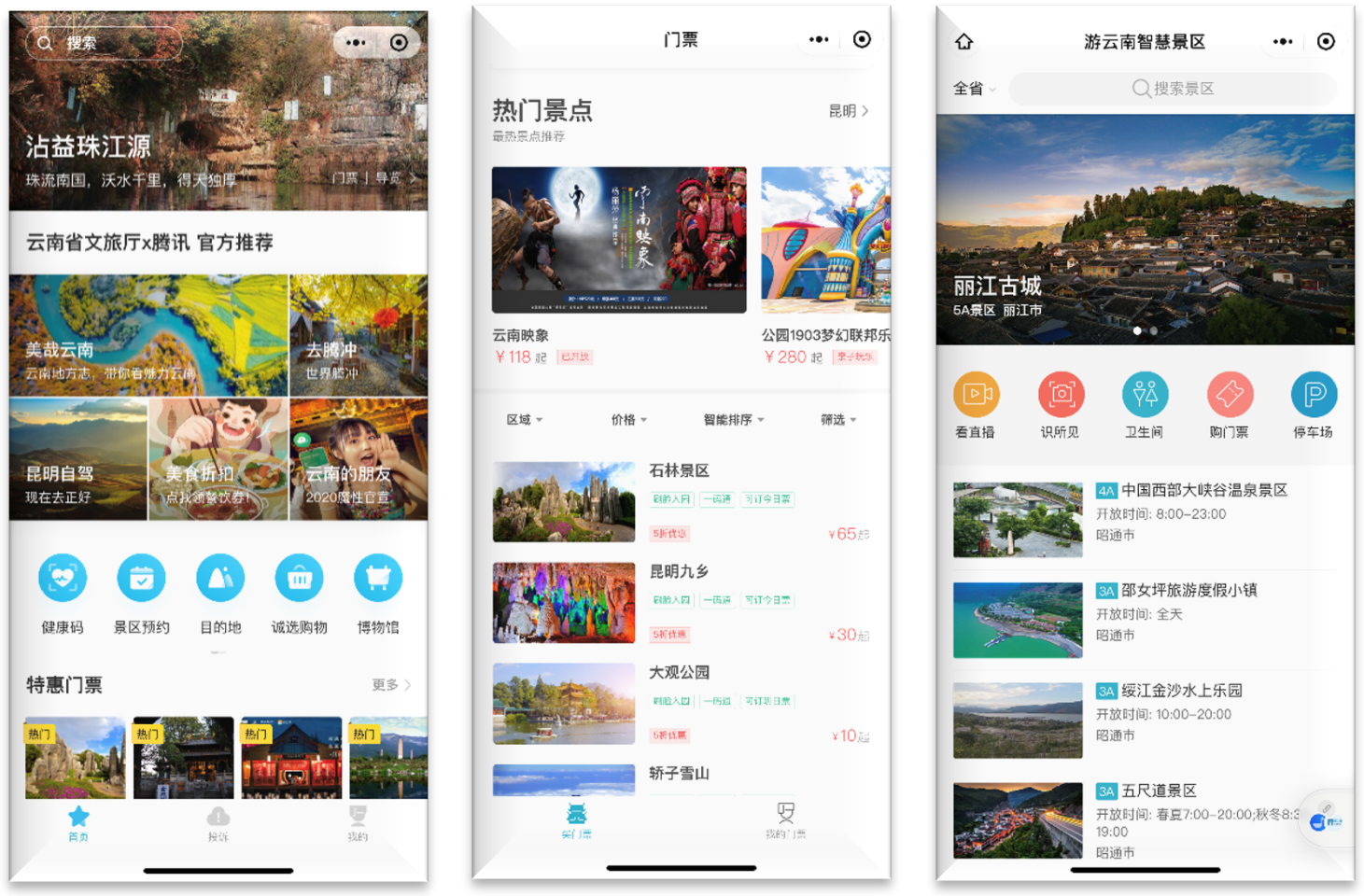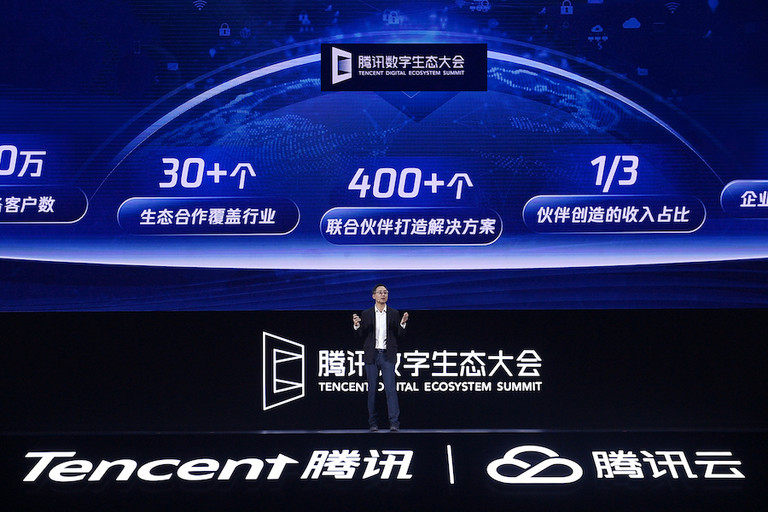DES Case Study: Yunnan Province Leverages Big Data and Cloud Computing for Personalized Travel Experiences
The Tencent Global Digital Ecosystem Summit was held online for the first time from September 9 to 11, 2020. Tencent unveiled its new strategies and solutions for the cloud and smart industries and shared best practices with the audience at the event. We have selected two customer success case studies that illustrate what is possible when businesses upgrade to embrace the digital economy. This is the second article in the series.
————————
Yunnan Province in southwest China is known for its spectacular beauty. Its snow-capped mountains, serene lakes, renowned historical sites, and famous hand-picked tea bring millions of people to Yunnan each year, making it a major pillar of the province’s economy.
While Yunnan may be known for its long and rich history, the province’s Department of Culture and Tourism is using a very modern approach to attract new visitors and create better experiences for travellers. It has turned to Tencent to help it leverage the internet, big data, cloud computing, and even artificial intelligence to digitally transform the local tourism industry.
Tencent took on the challenge to create a new, more personal way for visitors to explore Yunnan. We applied advanced technologies to create a trusted, comprehensive and convenient tourism platform that connects online and offline public services as well as merchants. The platform connects these systems with video information, precise locations, sensors and other resources; Tencent’s artificial intelligence technology would then analyse and make real-time recommendations to enable truly intelligent travel services.
We started building the GO-Yunnan smart travel platform in September 2017 and launched its mobile app for travellers, GO-Yunnan, a year later.
 The GO-Yunnan Mini Program offers travellers a one-stop platform for reservations, tickets, directions, and more services.
The GO-Yunnan Mini Program offers travellers a one-stop platform for reservations, tickets, directions, and more services.
The one-stop app provides visitors with a wide range of travel services. Tourists can check in at a hotel, rent a car, access route maps and GPS, shop online, buy tickets, and do many other things. The app is able to provide personal, customized tour products and services to travellers while enabling tourism officials to identify the pain points and resolve them.
The travel services start well before visitors set foot in the province and accompanies them throughout their stay. Using the app, they can get a sneak peek of the scenic spots in Yunnan through live streams on their smartphones. They can also buy tickets online, scan a QR-code on arrival, and skip the queue to enter the venue. Artificial intelligence applications can answer questions and provide customized information to make the visit more meaningful throughout the visitors’ entire stay.
The GO-Yunnan app can also help tourists plan their itineraries, book tickets, find the nearest available restrooms and parking spots. If travellers are not satisfied or have a problem with a merchant, they can provide feedback through the app or ask for help with just a single tap, summoning a customer service representative for assistance.
The app has been downloaded over 12 million times by nearly seven million users so far. Its Mini Program, embedded in Weixin (the Chinese mainland version of WeChat), has been visited 30 million times by its more than five million registered users. Combined, the app and its Mini Program have served 150 million people as of July 2020.
This has powered a dramatic improvement in the tourism industry in Yunnan through increased tourism-related revenue and enhanced customer service standards. Among the highlights:
- In the first half of 2019, the total number of tourists to Yunnan Province hit 399 million, an increase of 18% year-on-year. Total tourism revenue increased by 19%.
- As of November 2019, the number of tourist complaints had dropped by 62% year-on-year, and Yunnan’s complaint ranking fell from fifth in China to 27th.
- The average processing time for complaints was reduced from 12 days to less than five hours.
Connecting tourism with technology has also led to other achievements, such as:
- As of now, the platform has offered nearly 1,700 live streaming and 185 AI tour guide services for scenic spots in Yunnan.
- More than 700 smart restrooms and 400 intelligent parking lots have been added.
- Tencent hosted more than 100 marketing campaigns which were viewed one billion times.
- More than 500 partners have joined the smart-marketing ecosystem.
The rollout of the GO-Yunnan app also helped to accelerate the adoption of digital consumption and payment systems, providing merchants with better insights to respond to consumer demands.
Tencent’s technologies – Mini Programs, Weixin, Tencent Cloud, and the Tencent AI Lab – work together seamlessly to provide end-to-end digital upgrade for the tourism industry in Yunnan Province that benefits both local merchants and the hundreds of millions of people visiting Yunnan every year.
Our experience working with Yunnan Province was noticed by other regions in China and beyond. For instance, we are supporting Jiuzhaigou, a famous nature reserve and national park, to cultivate a new model of sustainable development and cloud-based management. We are also collecting and digitizing high-definition photos of the Forbidden City with the support of cloud and AI technology, while also helping the historic Beijing landmark to operate and upgrade its cloud-based database. At the same time, we also teamed up with international metropolises Singapore and Helsinki, Finland, to boost tourism through the smart use of technology.
Technology can help communities when it’s leveraged to boost local economies. It’s about helping businesses grow while providing more relevant and personalized recommendations to visitors – and ultimately smarter, safer tourism.





